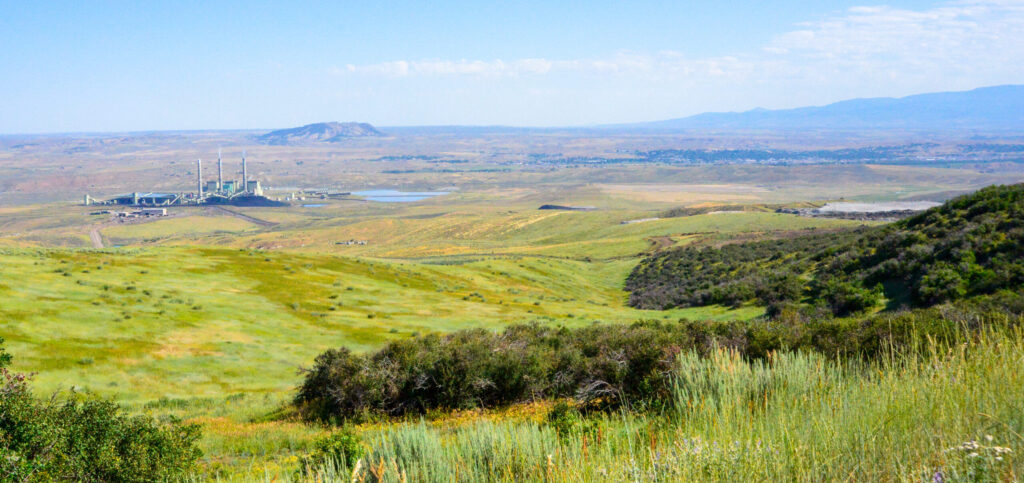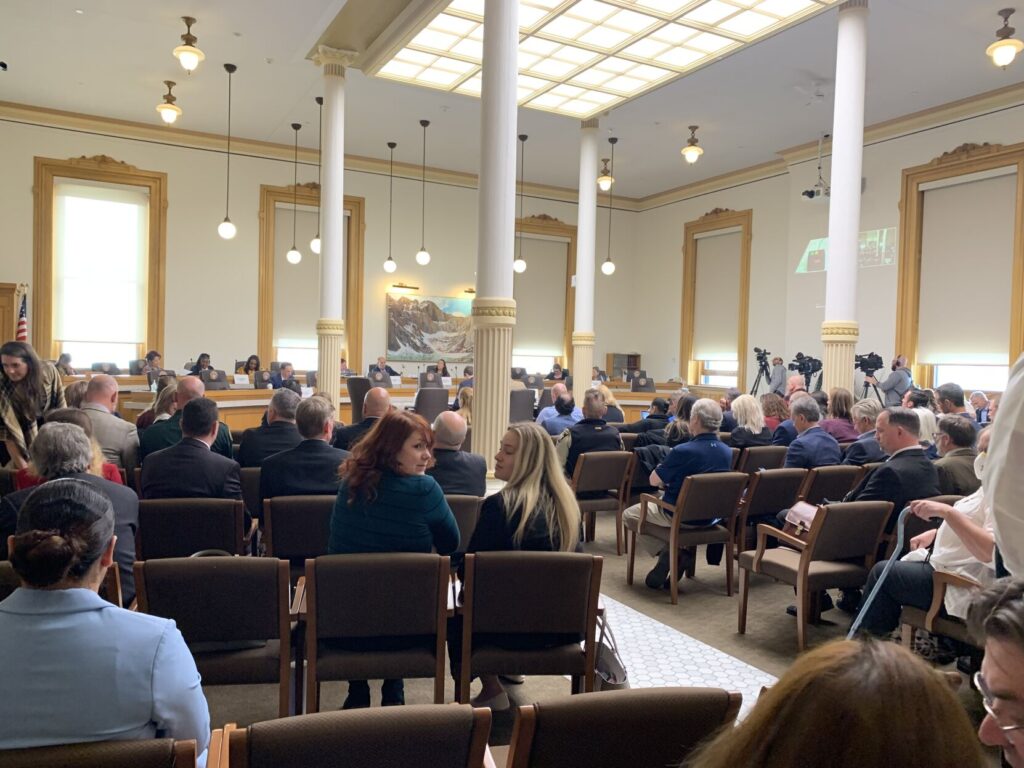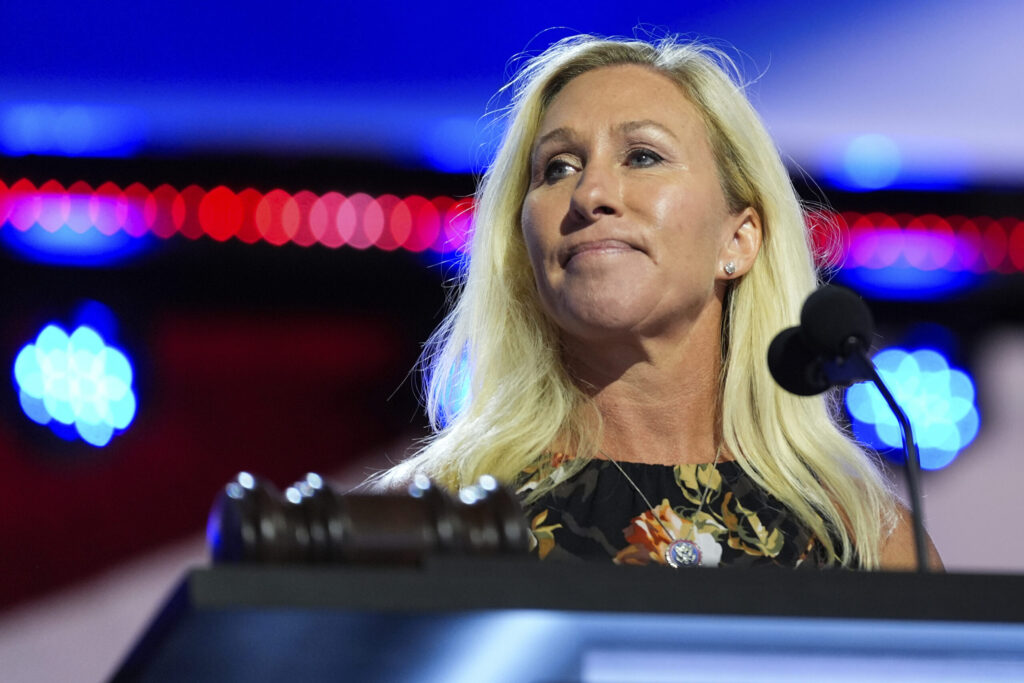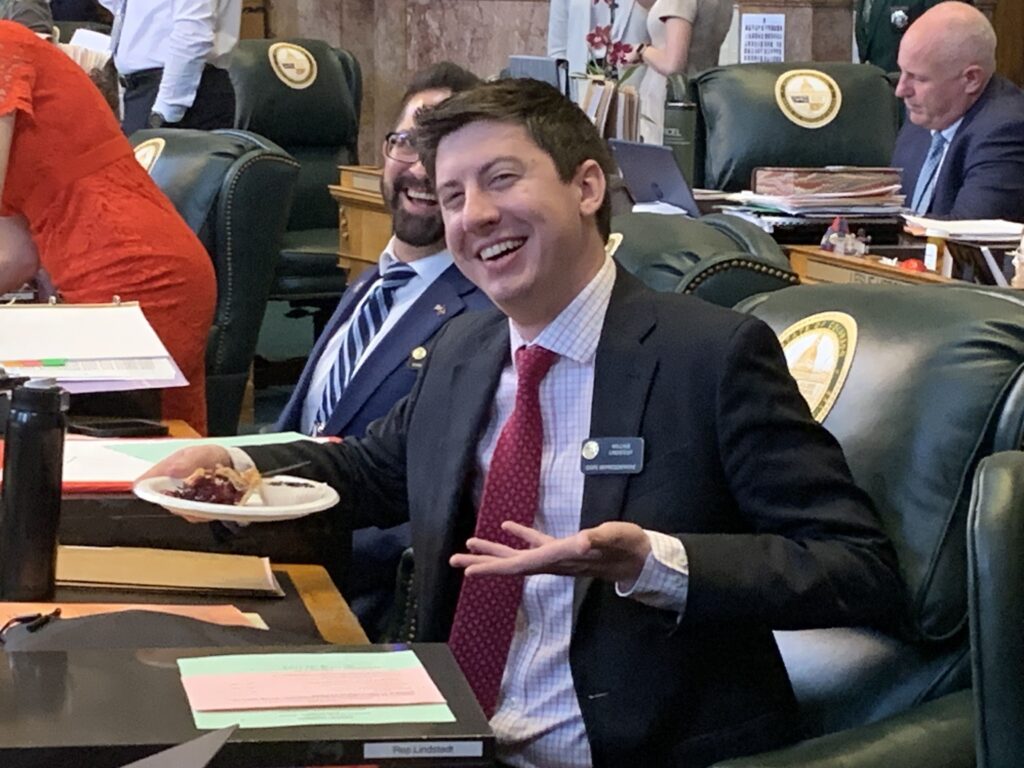YESTERYEAR: Owens talks economy on West Slope, Romer and JBC butt heads, ADL condemns David Duke
… Fifteen Years Ago this week in The Colorado Statesman … Politicos and policy wonks from Denver braved the treacherous mountain passes on I-70 to visit the Western Slope for an economic roundtable, featuring Colorado’s chief executive, Gov. Bill Owens. The Republican governor stated that allowing businesses and consumers to buy “Chevrolet instead of Cadillac” health insurance plans would give a big boost to small businesses struggling to pay premiums. That would lead, he said, to a better economy in rural Colorado where most of the jobs were in small business.
Because of the Legislature’s requirement for fifteen specific things all health insurance must cover, health insurance costs have sky-rocketed, Owens explained. Owens held roundtables in five locations around the state and the Grand Junction event drew nearly 200 people.
At the Grand Valley’s roundtable, the focus was on the Western Slope economy, which did not benefit as much as the Front Range did from the economic boom of the 1990s. Owens said the Front Range thrived because the economy was diversified and thus diversification must be emphasized on the Western Slope for its economy to succeed.
Various business leaders and elected officials proposed a grab-bag of things the state could do, from lowering severance taxes on minerals and oil and gas, to expanding vocational education through community colleges and technical schools. But with the recession in mind, Owens and his budget chief warned that the Legislature would not likely have much money to throw around during the upcoming session.
Other business leaders from Montrose and Grand Junction gave presentations and tried to educate Owens that highways, air service and telecommunications all needed major improvements for the regional economy to survive.
… Twenty Years Ago … budget woes were on the state’s political menu … and as a main course. Managerial disputes arose during a meeting between Democrat Gov. Roy Romer and the members of the Colorado Legislature’s all-powerful, Republican-led Joint Budget Committee, highlighting a clash of governing philosophies between the two branches of government and parties.
Colorado was set to benefit from a $381 million budget surplus, created when the thriving economy brought in more money in taxes than the Taxpayer’s Bill of Rights allowed to be spent on day-to-day operations.
Romer said he was concerned with how the JBC members made their decisions as to where the surplus dollars should go, an issue he underscored during the meeting. Romer also butted heads with the JBC over the control of the Information Management Commission, which the JBC intended to bring under its control. “Personnel have got to be in the executive,” Romer chided.
Committee member Rep. Dave Owen (R-Greeley) replied that the lack of a coherent plan from the IMC had prompted the decision. “There is no central information officer, no central person to coordinate information system requests,” Owen said. “Right now you have a committee making these decisions, but does the executive really know what these systems are and whether they’ll work together? There needs to be one guy in charge.”
Romer shot back that the Colorado executive was one of the weakest in the nation and that, in regards to the budget, the Legislature had taken over almost completely. He further stated that having a JBC member making decisions about the IMC would devastate the governor’s office.
Romer said that he disagreed with many of the JBC’s basic methods and philosophies, yet could do little about it except draw attention to the problems. The biggest difference between the governor and the JBC was the use of earmarked funds the JBC regularly conjured to make sure long-term, pre-existing line-items get at least minimal funding each year. Romer stated that such policies limited the flexibility needed to address the most pressing situations. Unfortunately for Romer and the JBC, those “most pressing problems” were also a point of clear dispute.
… Twenty Five Years ago … not All Nazis were living in South America, exclaimed an advertisement in The Statesman.
The ad, run by the Anti-Defamation League on November 22, 1991, featured David Ernest Duke. Duke had lost his campaign to become governor of the state of Louisiana.
“We should be deeply ashamed. Ashamed that so many Americans would support a man who stands in direct opposition to almost every democratic ideal this country was founded on.”
Duke served as a leader of the Knights of the Ku Klux Klan and was known to proudly wear a storm trooper’s brown shirt and swastika arm band, and had also declared that the extermination of six million Jews during the Holocaust was a “historical hoax.”
The ADL also called attention to Duke’s quote regarding the 100th anniversary of the Statue of Liberty as “… one of the most disgusting spectacles ever put on in the United States … to stage a huge propaganda rally for continued massive non-white immigration.”
“As an organization dedicated to fighting Nazism, bigotry and all forms of racism, the Anti-Defamation League has been monitoring, exposing and countering the career of David Duke for the past 20 years. It will continue to fight against Duke, and other leaders of the organized hate movement, in the future.”
… Fifty-Nine Years Ago … Talk of party unity and equality swirls. In 1959, former state Rep. Osilsvie (Sonny) Lawson was the spokesman for the Democratic Party and an outspoken advocate for the rights of African-Americans. Lawson was born and raised in Denver, and after graduating from Northwestern University, established a drugstore at Five Points.
Around the time his store opened, Sonny also became active in politics and was very impressed by Sen. Edward P. Costigan. “I sat at his feet with Charlie Brannan, John Carroll, and others,” he recalls. “He was a great teacher. From time to time he would call us in and we would just sit and listen to him expound. He was well ahead of his day – always for the people. Money didn’t mean much to him, although he had plenty, and he uplifted the people generally.”
Lawson had high hopes to follow his mentor and represent Denver at the 1960 Democratic Convention. “I believe our delegation should speak for all segments,” he explained and hoped for a presidential candidate to do the same.
Lawson had been a leader in the largely African-American precincts, which consistently gave Democratic majorities of 3-, 4- and 5-1 – long before Lawson was given a precinct captain position, making him the first African-American captain for the Democratic Party elected in Denver.
Lawson was forced to step down from his House District 18 seat in 1958 to have two major operations. He was succeeded by Rep. Ike Moore, one of the many African-Americans he had encouraged to rise to leadership. Others who had flourished under Lawson’s wing included municipal Judge James C. Flanigan, Councilman Elvin Caldwell, state Sen. George Brown and Wendell Sayers, serving in the state attorney general’s office.
“I’ve tried to pick boys and girls who would make good, and all of them have. I tried to think of the party in all the appointments I’ve recommended,” said Lawson. When asked how he earned his nickname, Sonny explained it must have been his disposition.
He applied this theory to his philosophy of politics: “We should always remember that we have a common enemy and not fight so much among ourselves. We must have primaries, but always realize that we must not kill off each other. It is my job to sell my candidate, not lambaste and attack the other fellow. Roosevelt never mentioned an opponent-why advertise him? Let him advertise himself.”











